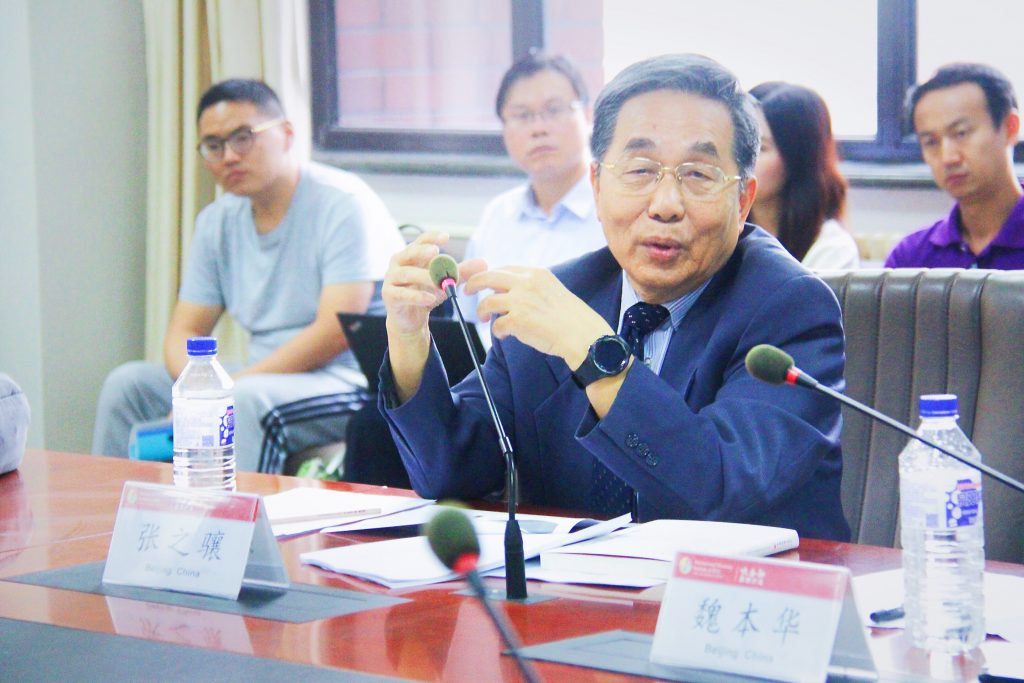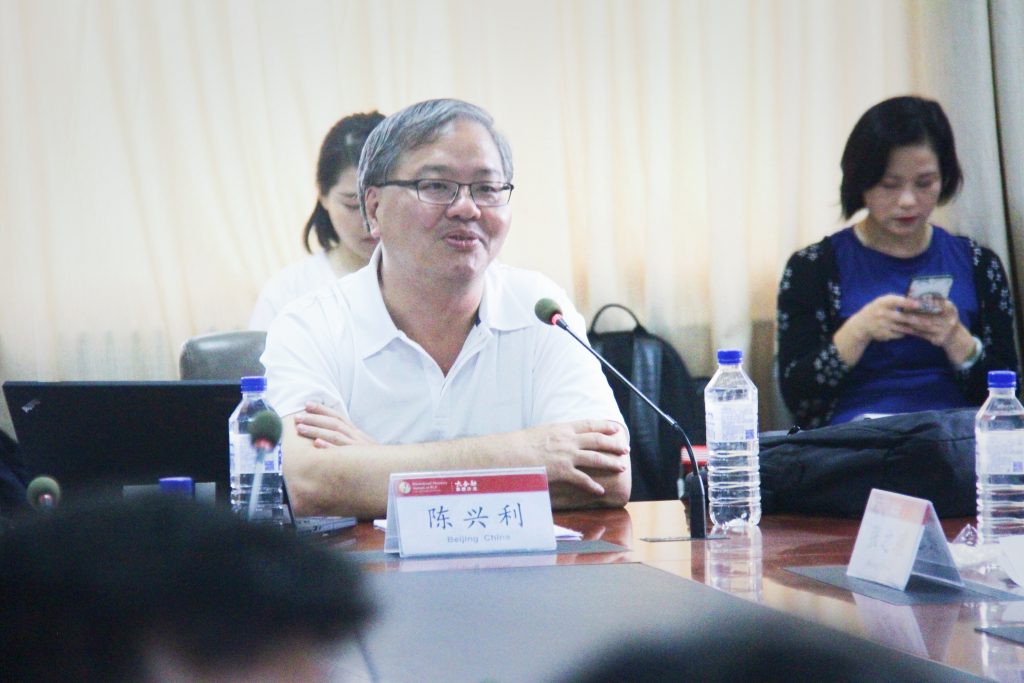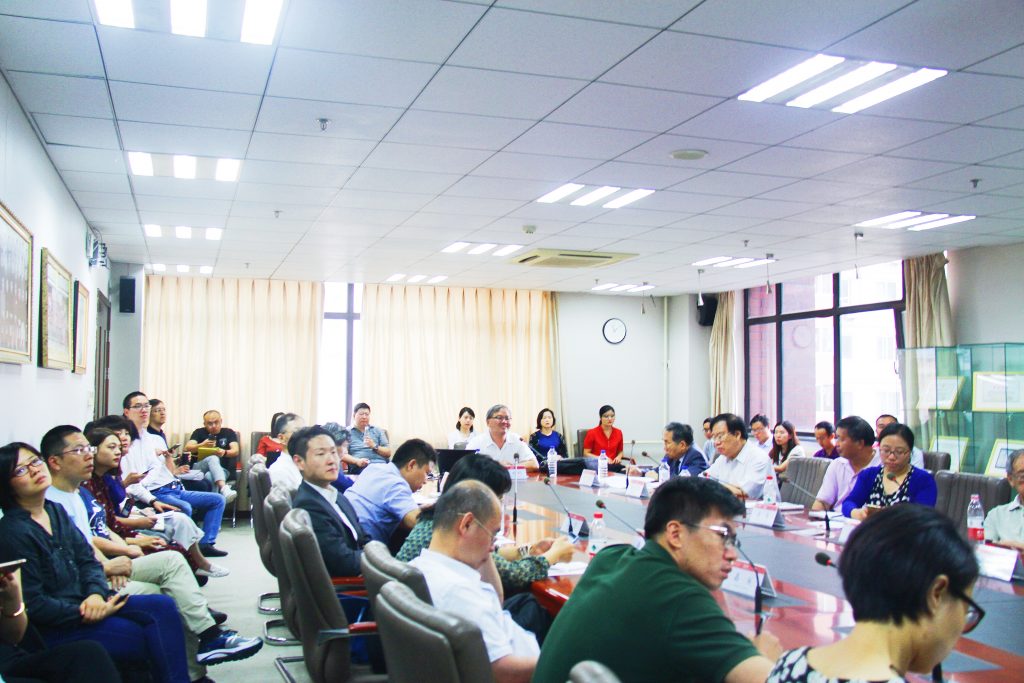Macro-Finance Salon (No.98): US Trade War with China and China’s Economic New Normal
2018-09-10 IMI Chen first analyzed the two countries’ share of trade goods and then concluded that if trade war escalates, America’s economy may lose more, but he admitted that China would face greater pressure in inflation and more new challenges due to weak industrial technologies. He believed that political and economic factors are intertwined in a trade war, at the beginning of trade war, political factors have stronger influence, but in the end, the result depends on economic factors.
He then analyzed some problems in China’s economy since the reform and opening-up, such as the disparity between the rich and the poor, deleveraging, lacking of vision in businesses, imbalances in industrial structure and bubbles in housing market. He believed that the way out of these problems is to reform the whole industrial system.
At last, he talked about the economic new normal. He thought that the slowdown of growth is in line with the economic laws and poses great challenge in government’s regulation ability. China’s economic development is imbalanced in terms of deferent industries. In some old industries, China may be lagging behind, but in some new industries, China is in a leading role. With the forth industrial revolution arriving, trade war may be a great opportunity for China’s development.
Chen first analyzed the two countries’ share of trade goods and then concluded that if trade war escalates, America’s economy may lose more, but he admitted that China would face greater pressure in inflation and more new challenges due to weak industrial technologies. He believed that political and economic factors are intertwined in a trade war, at the beginning of trade war, political factors have stronger influence, but in the end, the result depends on economic factors.
He then analyzed some problems in China’s economy since the reform and opening-up, such as the disparity between the rich and the poor, deleveraging, lacking of vision in businesses, imbalances in industrial structure and bubbles in housing market. He believed that the way out of these problems is to reform the whole industrial system.
At last, he talked about the economic new normal. He thought that the slowdown of growth is in line with the economic laws and poses great challenge in government’s regulation ability. China’s economic development is imbalanced in terms of deferent industries. In some old industries, China may be lagging behind, but in some new industries, China is in a leading role. With the forth industrial revolution arriving, trade war may be a great opportunity for China’s development.
 In the discussion sector, guests discussed some hotspot issues such as financial risks and debt crisis under the present trade fraction, transformation of world economy, flexible solutions of trade war, investment efficiency and structure of government and businesses, global public goods shortage, expanding army and armament, influence of belt and road initiative in trade war, as well as China’s images as a major creditor nation.
In the discussion sector, guests discussed some hotspot issues such as financial risks and debt crisis under the present trade fraction, transformation of world economy, flexible solutions of trade war, investment efficiency and structure of government and businesses, global public goods shortage, expanding army and armament, influence of belt and road initiative in trade war, as well as China’s images as a major creditor nation.
 Macro-Finance Salon was jointly founded by IMI and the School of Finance of Renmin University of China. The salon is a platform that enables high-level academic discussions. It has mainly four columns, namely Policy Experts, Prestigious Scholars, Industrial Elites and Young Scholars. Since its establishment, following the goal of thinking global, acting local, the salon has become a high-level, professional and open platform in promoting “macro-finance” studies and boosting academic exchanges in “macro-finance” theories and policies. The idea of “macro-finance” is inspired by professor Huang Da and his proposition of combining macro- and micro-financial theories, and backed by the idea that finance and real economy are two integral parts of economic system.
Chen Yulu, vice president of the PBC, illustrated the basics and methodology of “macro-finance” in Outlines of Macro-Finance. His illustration has set theoretic and empirical basis for “macro-finance” system, which will benefit long-term economic growth and national strength.
Macro-Finance Salon was jointly founded by IMI and the School of Finance of Renmin University of China. The salon is a platform that enables high-level academic discussions. It has mainly four columns, namely Policy Experts, Prestigious Scholars, Industrial Elites and Young Scholars. Since its establishment, following the goal of thinking global, acting local, the salon has become a high-level, professional and open platform in promoting “macro-finance” studies and boosting academic exchanges in “macro-finance” theories and policies. The idea of “macro-finance” is inspired by professor Huang Da and his proposition of combining macro- and micro-financial theories, and backed by the idea that finance and real economy are two integral parts of economic system.
Chen Yulu, vice president of the PBC, illustrated the basics and methodology of “macro-finance” in Outlines of Macro-Finance. His illustration has set theoretic and empirical basis for “macro-finance” system, which will benefit long-term economic growth and national strength.
